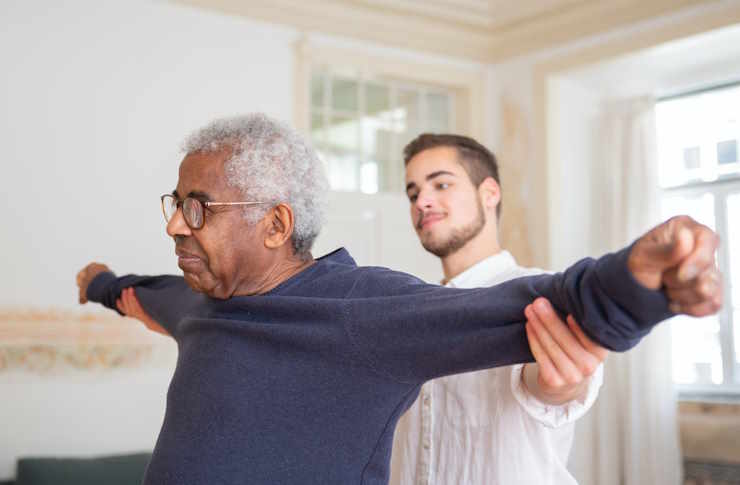Understanding Parkinson's Disease: Symptoms, Causes, and Effective Treatment Strategies
Parkinson's disease is a complex and progressive neurodegenerative disorder that severely impacts motor skills and daily life. It is characterized by the loss of dopaminergic neurons in the brain and affects millions of people worldwide. Therefore, understanding and diagnosing Parkinson's disease is crucial. This article provides a detailed analysis of treatment options and the latest research findings on this condition.

Parkinson’s disease represents one of the most common movement disorders affecting the nervous system. As a progressive condition, it develops when nerve cells in the brain gradually break down or die, particularly those responsible for producing dopamine, a chemical messenger crucial for coordinating smooth and controlled movements. While the exact cause remains unclear, researchers have identified several factors that may contribute to its development, including genetic predisposition and environmental influences.
What Are the Symptoms of Parkinson’s Disease?
The symptoms of Parkinson’s disease typically emerge gradually and vary significantly among individuals. Early warning signs often include a slight tremor in one hand, stiffness in the limbs, or slowed movement. As the condition progresses, tremors may become more pronounced, affecting hands, arms, legs, jaw, and face. Muscle rigidity can occur in any part of the body, limiting range of motion and causing pain. Bradykinesia, or slowed movement, makes simple tasks increasingly difficult and time-consuming. Other symptoms include impaired posture and balance, loss of automatic movements like blinking or swinging arms while walking, speech changes, and writing difficulties. Non-motor symptoms such as sleep disturbances, depression, cognitive changes, and fatigue also commonly occur.
What Treatment Options Exist for Different Stages of Parkinson’s Disease?
Treatment options for different stages of Parkinson’s disease vary based on symptom severity and individual needs. In early stages, healthcare providers may recommend lifestyle modifications, physical therapy, and occupational therapy to maintain function and independence. As symptoms progress, medication becomes a primary treatment approach. Levodopa remains the most effective medication, converting to dopamine in the brain to help control movement symptoms. Dopamine agonists mimic dopamine effects, while MAO-B inhibitors prevent dopamine breakdown. COMT inhibitors extend levodopa effectiveness, and anticholinergics help control tremors. For advanced stages, deep brain stimulation surgery may be considered, involving implanted electrodes that deliver electrical impulses to specific brain areas. Continuous medication delivery systems, such as intestinal gel infusions or subcutaneous apomorphine pumps, provide more consistent symptom control for patients experiencing medication fluctuations.
What Factors Can Aggravate Parkinson’s Disease?
Aggravating factors of Parkinson’s disease include elements that worsen symptoms or accelerate progression. Stress significantly impacts symptom severity, often increasing tremors and muscle rigidity. Lack of sleep disrupts the body’s natural repair processes and intensifies fatigue and cognitive difficulties. Certain medications, particularly antipsychotics and some anti-nausea drugs, can block dopamine receptors and worsen motor symptoms. Dehydration affects medication absorption and overall physical function. Poor nutrition, especially diets lacking in antioxidants and essential nutrients, may contribute to faster progression. Sedentary lifestyles lead to increased stiffness and reduced mobility. Environmental toxins, including pesticides and heavy metals, have been linked to increased risk and symptom aggravation. Infections and illnesses place additional stress on the body, temporarily worsening symptoms.
How Can You Slow the Progression of Parkinson’s Disease?
How to slow the progression of Parkinson’s disease involves a multifaceted approach combining medical treatment, lifestyle modifications, and proactive management. Regular physical exercise stands as one of the most effective strategies, with studies suggesting activities like walking, swimming, dancing, and tai chi help maintain mobility, balance, and overall function. A balanced diet rich in antioxidants, omega-3 fatty acids, and fiber supports brain health and may provide neuroprotective benefits. Adequate sleep allows the brain to repair and regenerate, potentially slowing disease progression. Stress management through meditation, yoga, or counseling reduces symptom exacerbation. Staying mentally active with puzzles, reading, and social engagement helps preserve cognitive function. Early and consistent medical treatment optimizes symptom control and may influence disease trajectory. Avoiding known toxins and maintaining overall health through regular medical check-ups supports long-term wellness.
What Medications and Natural Remedies Help Manage Parkinson’s?
Medications and natural remedies for Parkinson’s encompass both pharmaceutical interventions and complementary approaches. Prescription medications form the cornerstone of treatment, with levodopa-carbidopa combinations providing the most significant symptom relief. Dopamine agonists like pramipexole and ropinirole offer alternative or supplementary options. Rasagiline and selegiline, as MAO-B inhibitors, help preserve dopamine levels. Amantadine reduces involuntary movements and may provide modest symptom improvement. Natural remedies, while not replacing medical treatment, may offer supportive benefits. Coenzyme Q10, an antioxidant, has been studied for potential neuroprotective properties, though results remain inconclusive. Vitamin E and other antioxidants may support overall brain health. Mucuna pruriens, a natural source of levodopa, has been explored but requires careful consideration due to variable potency and potential interactions. Green tea extract, curcumin, and omega-3 fatty acids demonstrate anti-inflammatory properties that may support neurological health. Massage therapy, acupuncture, and music therapy provide symptom relief and improve quality of life for some individuals.
This article is for informational purposes only and should not be considered medical advice. Please consult a qualified healthcare professional for personalized guidance and treatment.
Living Well With Parkinson’s Disease
Managing Parkinson’s disease requires ongoing collaboration between patients, families, and healthcare teams. While the condition presents significant challenges, advances in treatment and comprehensive care approaches enable many individuals to maintain active, fulfilling lives for years after diagnosis. Understanding symptoms, recognizing aggravating factors, and implementing strategies to slow progression empowers patients to take control of their health journey. Combining evidence-based medical treatments with lifestyle modifications, supportive therapies, and community resources creates a holistic approach to care. As research continues to advance, new treatments and insights emerge, offering hope for improved outcomes and quality of life for those affected by this complex neurological condition.



